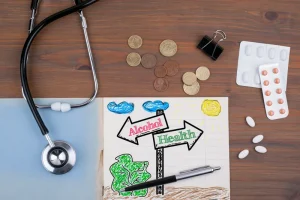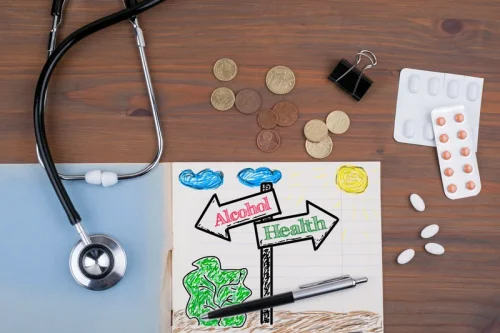Understanding Alcohol Sweats and Withdrawal Symptoms
Understanding Alcohol Sweats and Withdrawal Symptoms Night sweats are different from hot flashes because they only occur while sleeping.
Data:
15 Maggio 2024
Understanding Alcohol Sweats and Withdrawal Symptoms
Night sweats are different from hot flashes because they only occur while sleeping. They also result in severe perspiration, often soaking your bedding and clothes to the point where you must change them. Anyone undergoing alcohol withdrawal should do so under the guidance of medical professionals in an inpatient treatment facility (detox). Alcohol addiction treatment is the most effective way to recover and abstain from alcohol long-term.
Understanding Alcohol Sweats and Withdrawal Symptoms
Why do I sweat after drinking alcohol?
Drinking can increase your heart rate and widen blood vessels in your skin. Every person will have a unique experience when going through alcohol withdrawal. The symptoms you experience, the severity and the risk they pose to you will depend on your personal history and your physical and mental health.
When To Seek Help For Excessive Sweating, Nausea, Vomiting, Seizures, Hallucinations, Or Blackouts.
Deciding to cut back or quit drinking alcohol can be difficult, but it’s a powerful step towards improving your physical and mental health. Whether you are looking to reduce your alcohol consumption or quit altogether, there are steps you can take. The most effective solution is to cut back on or quit drinking alcohol altogether. By reducing or eliminating alcohol consumption, our bodies can rehydrate, and regulating our fluid balance more effectively, and reducing the likelihood of night sweats.
What are the Health Risks Associated with Alcohol?
Understanding Alcohol Sweats and Withdrawal Symptoms
A person may not experience any symptoms or signs of liver damage or scarring, which people call cirrhosis, until the liver is badly damaged. A person should seek immediate medical attention if they experience these symptoms. People may not realize that because of this, they sweating when drinking are at risk of hypothermia in cold weather.
- People may not realize that because of this, they are at risk of hypothermia in cold weather.
- Speak to your GP for a medical opinion on the best next steps for you.
- Doctors may use allergy tests to determine whether alcohol is the issue.
- This increase in heart rate and vasodilation can lead to sensations of warmth, flushing, and subsequent sweating.
What are Alcohol Night Sweats?
Understanding Alcohol Sweats and Withdrawal Symptoms
Alcohol affects the central nervous system and can increase heart rate and widen blood vessels in the skin, triggering perspiration. This increased blood flow and vasodilation can result in sweating and a feeling of warmth, which may contribute to night sweats. Night sweats, which refer to excessive sweating during sleep, can be a common occurrence for individuals who consume alcohol. There are several causes behind night sweats related to alcohol consumption, including the effects of alcohol on the body and its connection to alcohol withdrawal. Alcohol can cause various reactions in the brain that cause us to sweat directly after consumption.
If symptoms persist despite attempts at cooling down, seek medical attention immediately as this can be a sign of alcohol poisoning or another serious health issue. You should also speak to your doctor if you think another underlying health condition may cause your night sweats. They may be able to suggest medications, lifestyle changes, or therapies that can help reduce the symptoms of alcohol withdrawal and substance abuse. You can meet with a specialized Oxford House physician, such as myself, to learn more about treatment options, including medication to stop drinking and specialized alcohol therapy.
How to stop alcohol night sweats
- Seek help from an accredited alcohol detox and rehabilitation center.
- Alcohol affects the central nervous system, the circulatory system, and virtually every part of your body.
- Excessive sweating when drinking alcohol can be a sign that something is wrong.
- Night sweating may also indicate certain types of cancers, which a person can discuss with their oncologist.
- They generally subside after 7 days but can continue for weeks or months after drinking your last alcoholic drink.
Medications help ease cravings and manage symptoms like night sweats. Also, some people drink alcohol as a coping mechanism to deal with social anxiety. You must seek professional treatment for alcohol misuse and addiction.
Ultimo aggiornamento
20 Febbraio 2025, 13:51
Commenti
Nessun commento
 DDM SPID Aggregator
DDM SPID Aggregator
Lascia un commento